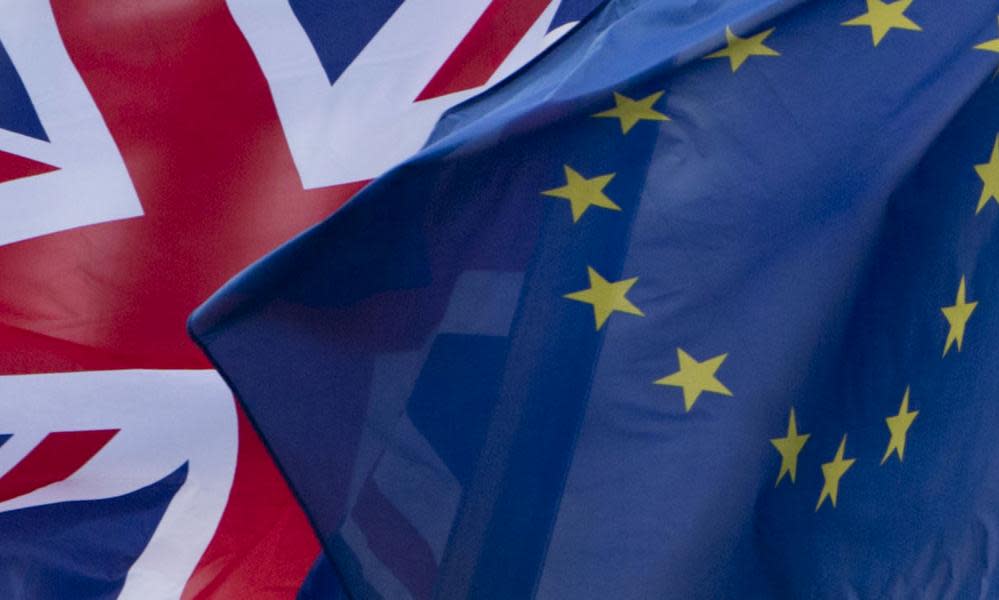Boris Johnson set for compromise on Human Rights Act – EU sources

Boris Johnson is prepared to make a major compromise to secure security ties with the EU by pledging in a deal on the future relationship not to rip up the Human Rights Act.
The UK is said by EU sources to be “moving” in negotiations on the issue in Brussels after previously insisting that the government would not tie its hands in any agreement on the future relationship.
While welcomed by EU negotiators as unlocking progress in the security talks, the move risks angering senior backbenchers in his party including within the powerful European Research Group, whose former chairman, the cabinet minister Jacob Rees-Mogg, has been an outspoken critic of the act, voting to repeal it in 2012 and 2016.
The European convention on human rights (ECHR) is incorporated into British domestic legislation by the Human Rights Act (HRA).
The EU has since the start of the trade and security negotiation said that future cooperation on internal security would be conditional on a written commitment that the ECHR would continue to apply.
The UK’s chief negotiator, David Frost, argued in response that it would be an infringement of the country’s “sovereign independence” to write in such a commitment to a deal, raising concerns in some quarters about the government’s motivations.
But EU sources said a compromise was now in play under which the trade and security deal would include a commitment by the government not to “materially alter the spirit” of the Human Rights Act.
Either party would then have the right to suspend or terminate the agreement if there were serious concerns about the protection of fundamental rights and the rule of law.
It is a key development, which offers to open up access to EU databases and other forms of crime-fighting cooperation to British law enforcement agencies. “That opens the door to get to work on the open internal security files,” said one senior diplomatic source in Brussels.
A UK government spokesman said: “The UK remains committed to the ECHR – we have been clear on that time and time again, including in parliament.
“We agree that cooperation with the EU should be based on our shared values of respect for fundamental rights and for the rule of law. The UK’s approach to these issues in the context of law enforcement is based on precedent for EU-third country agreements in this area.”
As recently as last month, it had been reported that the prime minister had been looking at weakening the hold of the Human Rights Act so as to curb its use by migrants and asylum seekers seeking to avoid deportation.
The Conservative party’s 2019 election manifesto had also promised a review of the legislation. In a blogpost in 2018, the prime minister’s now chief adviser, Dominic Cummings, had written that the ECHR creates “legal problems all the time”.
But the EU’s chief negotiator, Michel Barnier, had publicly warned that adherence to the ECHR was a red line for Brussels. “If the United Kingdom’s position does not move, it will have an immediate and concrete effect on the level of ambition of our cooperation, which will remain based on international conventions but will not be as ambitious as we wish,” he said in March.
There remain significant obstacles to securing the type of security deal being sought by the British government, however. Last month the Guardian revealed that a radical “pro-tech” plan championed by Cummings to rewrite Britain’s data protection laws was endangering future cooperation.
The European commission is currently examining whether the UK’s data laws will be in line with the EU’s general data protection regulation (GDPR) and law enforcement directive after 1 January 2021, allowing the movement of data vital to the law enforcement agencies.
Downing Street hopes that positive “adequacy” decisions can be made by Brussels before the end of the year when the transition period ends.
But EU sources said the government’s recently published national digital strategy had caused concerns by suggesting that there would be wholesale changes to the UK’s domestic data protection laws, imperilling a positive decision.
Following a phone call with the prime minister on Wednesday, the European council president, Charles Michel, who chairs the summits of EU leaders, tweeted: “Just talked to Boris Johnson. The EU prefers a deal, but not at any cost. Time for the UK to put its cards on the table.”
With the problematic issues of EU access to British fishing waters and domestic subsidy control yet to be solved, the negotiation is expected by EU officials to go into November.
Johnson had told the European commission president, Ursula von der Leyen, during a call on Saturday that he would like “clarity” by the time of an EU leaders’ summit on 15 October whether a deal is doable. But EU diplomats believed the October meeting was likely to be a “staging post” rather than a breakthrough moment.
Barnier is in London to lead the EU negotiators in the trade and security talks on Thursday and is set to meet Frost on Friday.

 Yahoo News
Yahoo News 
